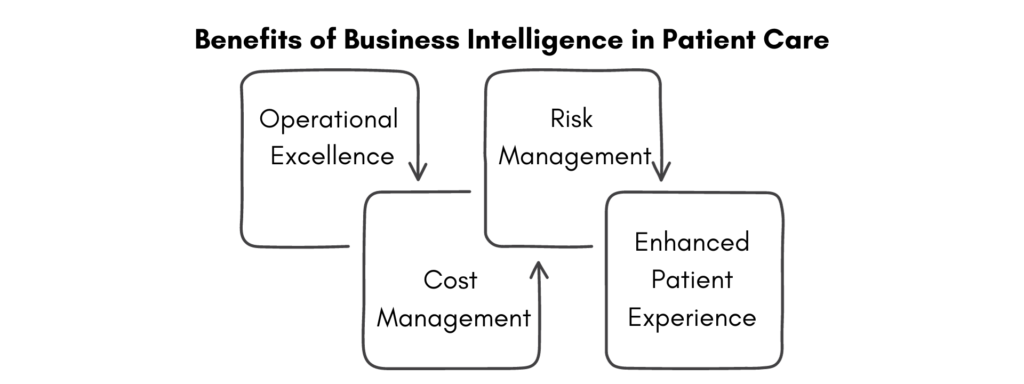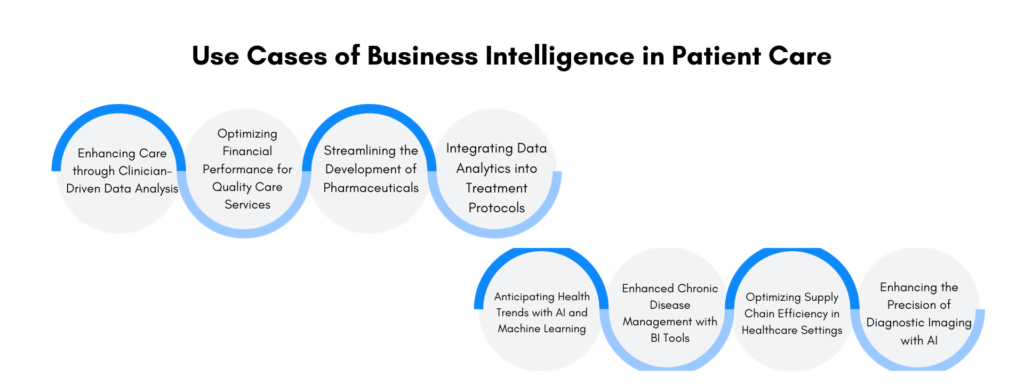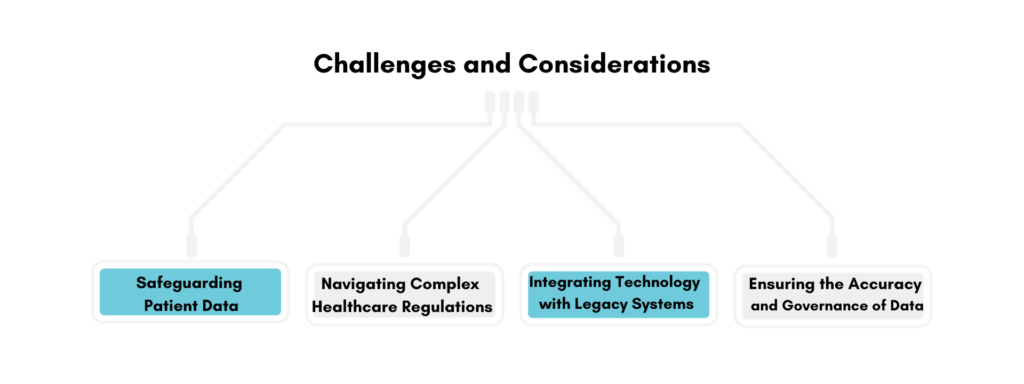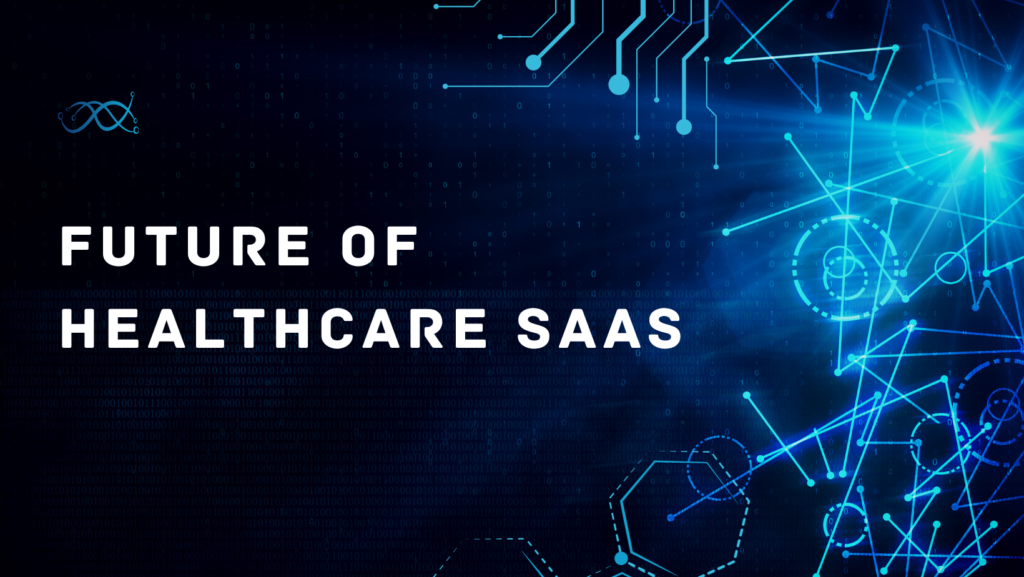Revolutionizing Patient Care with Healthcare Business Intelligence
The integration of healthcare business intelligence is revolutionizing patient care by enabling medical professionals to make informed decisions based on complex data analysis. This innovative approach has improved patient care standards. The use of business intelligence in healthcare translates intricate data into actionable insights, shaping treatment plans and enhancing operational efficiency. Embracing these technologies marks a shift to a more data-analytical approach to managing patient health.
Impact and Future of Healthcare Business Intelligence
The increasing impact of these advancements is becoming clearer, setting the course for future innovations and ensuring that medical decisions consistently hinge on data. This evolving landscape is reflected in the burgeoning global healthcare business intelligence market, expected to reach a worth of $25.86 billion by 2032, showing an estimated compound annual growth rate (CAGR) of 12.50% from 2023 to 2032. This growth underscores the rising integration and importance of these tools in the healthcare industry. Within this piece, we delve into how healthcare business intelligence tools have the potential to revolutionize patient outcomes.

Benefits of Business Intelligence in Patient Care
Through the adoption of intelligent business intelligence systems, healthcare facilities can enhance their ability to predict needs and expedite responses. Each incremental improvement in efficiency has the potential to bring about life-saving advancements in patient care. Here are Key ways in Which business intelligence fundamentally transforms the landscape of patient care.

Operational Excellence:
In the healthcare sector, operational efficiency is crucial for advancing patient care. The Utilization of medical business intelligence enables hospitals to streamline processes for optimal performance. This intelligence transforms intricate datasets into actionable operational strategies, optimizing various aspects from patient admissions to discharge protocols.
Cost Management:
Precision and foresight are paramount in healthcare finance management. The application of Healthcare Business Intelligence (BI) to enhance patient outcomes often results in substantial financial savings. It identifies opportunities for cost reduction without compromising the quality of patient care. Detailed analytics empower healthcare facilities to sidestep unnecessary expenditures.
Risk Management:
Effectively managing risk is crucial for delivering high-quality healthcare. Business intelligence in healthcare provides providers with essential foresight, identifying patterns that may pose Risks to patients. Successful risk management involves anticipating and preventing medical errors while ensuring the security and privacy of patient data.
Enhanced Patient Experience:
Creating a positive healthcare experience is paramount for ensuring patient satisfaction. The direct impact of utilizing business intelligence in hospitals is evident in this area, offering insights into patient preferences and behaviors. By analyzing this information, healthcare services can be tailored to be more patient-centric, resulting in improved patient engagement and streamlined care delivery efficiency.
Use Cases of Business Intelligence in Patient Care
Explore the leading methods by which business intelligence can transform patient care, showcasing the influential role of data in improving healthcare outcomes.

Enhancing Care through Clinician-Driven Data Analysis:
Clinicians Armed with healthcare business intelligence make well-informed decisions by leveraging patient data for personalized treatment plans, leading to a precision approach to diagnosis and treatment. Through trend analysis, they proactively predict and prevent potential health issues.
Optimizing Financial Performance for Quality Care Services:
The financial well-being of healthcare institutions is pivotal for sustaining high-quality patient care. Business analytics in healthcare identifies opportunities for cost reduction, ensuring funds are strategically allocated to impact patient care positively. Efficient financial management contributes to more affordable healthcare services.
Streamlining the Development of Pharmaceuticals:
Integrating business intelligence into healthcare optimizes pharmaceutical development by streamlining research and production processes. This integration enhances the efficiency of data analysis in clinical trials, leading to accelerated drug development cycles. It aids in the early identification of effective compounds, expediting the journey to market.
Integrating Data Analytics into Treatment Protocols:
Integrating analytics into treatment protocols enhances and personalizes patient care. Business intelligence in healthcare enables in-depth analysis of patient data, resulting in highly individualized treatment plans. Understanding the utility of healthcare business intelligence allows providers to anticipate which treatments will be most effective for specific patient demographics. Real time analytics aid in adjusting treatments based on observed patient responses.
Anticipating Health Trends with AI and Machine Learning:
The use of AI in Healthcare and machine learning stands at the forefront of healthcare analytics and business intelligence, playing a crucial role in anticipating health trends and unveiling new correlations. These technologies excel at processing complex datasets to inform healthcare strategies, identifying trends that might be overlooked through human analysis.
Enhanced Chronic Disease Management with BI Tools:
Business intelligence (BI) solutions in healthcare excel in the management of chronic diseases, facilitating personalized care plans based on patient data analysis. These tools monitor patient health indicators and adjust treatments accordingly, ensuring continuous improvement. The use of IoT wearable devices for ongoing monitoring of chronic disease patients significantly enhances their quality of life. Additionally, this technology aids in preventing hospital readmissions by alerting providers to potential issues at an early stage. The insights derived from data play a pivotal role in effectively managing patient adherence to treatment plans.
Optimizing Supply Chain Efficiency in Healthcare Settings
Uninterrupted healthcare services rely on efficient supply chains, and business intelligence (BI) in healthcare plays a key role in optimizing procurement and inventory control. BI ensures the availability of essential medical supplies without over-ordering, employing sophisticated data analysis for more accurate supply predictions. Additionally, it minimizes the risk of inventory expiration through just-in-time ordering. The data-driven approach to supply chain management results in substantial cost savings.
Redirecting these savings can enhance patient care services. Regular analysis of supply usage patterns allows for the refinement of ordering schedules, while predictive analytics aids in anticipating supply needs during epidemic outbreaks. Streamlined logistics support the rapid delivery of critical supplies. In summary, effective supply chain management serves as the foundation for maintaining the quality of patient care.
Enhancing the Precision of Diagnostic Imaging with AI
AI is transforming the landscape of diagnostic imaging, with advanced algorithms expediting and improving scan interpretation. These algorithms serve as enhanced decision-making tools for radiologists, detecting patterns that may signify early disease stages. The result is earlier interventions and improved treatment outcomes.
Machine learning models continuously learn from new data, leading to a perpetual enhancement of diagnostic precision. AI’s ability to handle substantial volumes of imaging data contributes to the reduction of patient wait times. In the realm of diagnostic imaging, healthcare analytics, and business intelligence have become essential components, working synergistically to enhance patient outcomes through technological advancements.
Challenges and Considerations
Navigating the intricate terrain of the healthcare business intelligence sector poses distinctive challenges and considerations. Delving into deeper insights, here are the crucial factors essential for the effective implementation and optimization of this complex landscape.

Safeguarding Patient Data:
Within the healthcare sector, prioritizing data security is imperative. Safeguarding patient information demands advanced protective measures and continuous monitoring. Given the swift evolution of cybersecurity threats, staying current with defense strategies is essential. Every measure must be taken to ensure the uninterrupted confidentiality of patient data.
Navigating Complex Healthcare Regulations:
The healthcare industry stands as one of the most heavily regulated sectors. It is crucial to thoroughly assess each BI tool for compliance with healthcare laws. This diligence is essential to guarantee that business intelligence within the healthcare industry supports patient care without exposing organizations to legal risks.
Integrating Technology with Legacy Systems:
Integrating modern BI solutions with older healthcare systems can be challenging. Overcoming technical obstacles is necessary to establish a cohesive data ecosystem. Successful integration typically demands a substantial investment of both time and financial resources.
Ensuring the Accuracy and Governance of Data:
Data-driven healthcare necessitates stringent standards for data accuracy. Inaccurate data can lead to misguided decisions and potentially harmful outcomes. Moreover, effective governance of this data requires clear policies and vigilant enforcement. In this environment, flawless operation of business intelligence in healthcare is imperative.
Digiatto IT Services Can Be Your Partner in Developing Effective Healthcare BI Solutions
At Digiatto IT Services, we take pride in delivering cutting-edge business intelligence in healthcare. Our dedicated teams collaborate closely with healthcare organizations to translate complex data into actionable insights, elevating patient care to unprecedented levels. Recognizing the unique challenges faced by each healthcare provider, our analytics solutions are meticulously crafted to address diverse needs with precision and care.
Connect with our experts to embark on your healthcare business intelligence software solution journey today.


